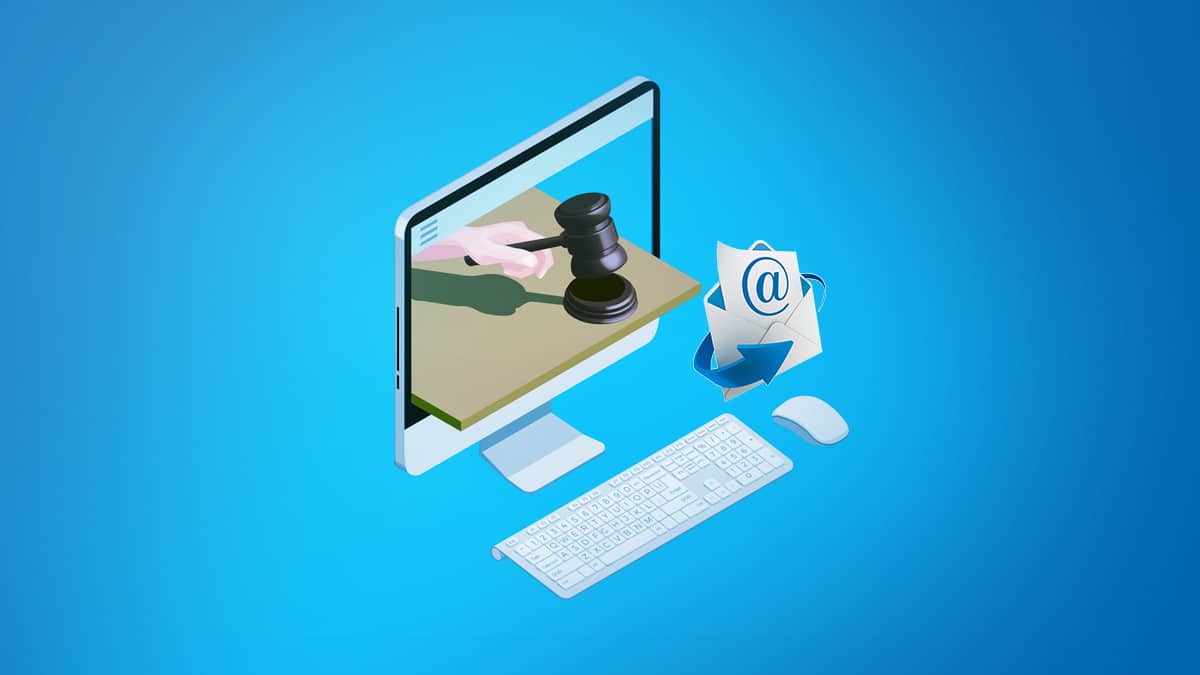Can Email Be Used as Evidence in Court for Legal Proceedings

In today’s digital age, where communication primarily takes place via electronic means, the question of whether emails can be used as evidence in a court of law is more relevant than ever. Emails have become an integral part of our personal and professional lives, often containing critical information and conversations. This article delves into the legal aspects surrounding email evidence, addressing concerns about its admissibility and practical considerations such as preserving, exporting, and using emails for legal purposes.
The Legitimacy of Email as Evidence
Emails represent a ubiquitous form of digital communication, and we should not underestimate their significance in legal proceedings. Essentially, they record conversations and interactions electronically. This leads us to the fundamental question: Do courts consider emails as legal documents? The answer is a resounding yes; courts admit emails as evidence when specific criteria are met.
Legal Admissibility
To understand the legal standing of emails as evidence, it’s crucial to delve into the rules and standards that govern their admissibility in court. Courts typically demand proper authentication of emails for admissibility. This entails identifying the sender and recipient and demonstrating the unaltered nature of the content.
When considering the admissibility of emails, the court also takes into account the legal and general email format. In legal proceedings, presenting the email’s content and metadata in a manner that complies with legal requirements is essential. Therefore, saving emails for court and ensuring they are in the correct format is imperative.
Key Factors Influencing the Use of Email as Evidence
Authentication
Authenticating emails is a crucial factor in determining their usability as evidence. Parties involved must prove the emails’ authenticity by verifying that the claimed parties sent and received them without tampering. Inadequate authentication can result in the exclusion of emails from court proceedings. It’s crucial to verify the absence of email tampering.
Privacy and Consent
In the realm of email evidence, privacy and consent play significant roles. It is essential to consider issues related to privacy when using emails in court. In some cases, individuals may object to the use of their emails as evidence due to privacy concerns. Understanding the legal boundaries and obtaining consent when necessary is crucial.
Metadata
Email metadata, which includes information about the sender, recipient, date, and time of transmission, can be valuable in establishing the authenticity and context of emails. Courts often rely on metadata to assess the credibility of email evidence. Therefore, preserving emails for legal discovery and ensuring they are in the correct format, including metadata, is vital for legal purposes.
The Role of Email Content
Content as Proof
The content of emails can be highly persuasive evidence in court. Email conversations often contain critical information, agreements, or admissions that can be pivotal in legal proceedings. It is not uncommon for legal teams to use email content to build their cases or defend against claims.
Email Chains and Threads
Email chains and threads, which show the progression of a conversation, are particularly useful in litigation. They provide a chronological account of communication, helping to establish context and intent. Courts often rely on email chains and threads to understand the full scope of a discussion or negotiation.
Common FAQs
Are emails considered legal documents?
Yes, emails are legal documents when they meet the necessary criteria for admissibility in court.
How should I save emails for court purposes?
To save emails for court, it is essential to preserve them in their original format, including metadata.
Can I export emails for legal review?
Yes, you can export emails for legal review, but it should be done in a way that maintains their integrity and authenticity.
Is it advisable to print emails for legal purposes?
Printing emails for legal purposes can be done, but it’s essential to ensure that the printout accurately represents the original email, including metadata.
Should I convert emails to PDF for legal purposes?
Converting emails to PDF can be a convenient way to preserve them for legal purposes, but care should be taken to maintain their integrity.
Where should I store emails in a secure location for legal purposes?
Emails should be stored in a secure location for legal purposes, such as a dedicated email archive or a secure cloud storage service, to ensure their availability for legal purposes.
Conclusion
In conclusion, emails are indeed considered legal documents, and their use as evidence in court is common. However, to ensure their admissibility, it is crucial to follow best practices in preserving, authenticating, and presenting emails. By understanding the legal and general email format requirements, individuals and organizations can confidently use emails as valuable evidence in legal proceedings. Properly handling email evidence can make a substantial difference in the outcome of a case, making it an essential aspect of modern legal practice.